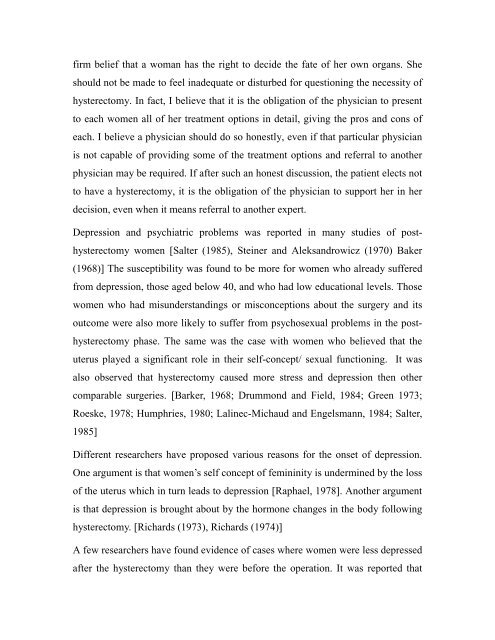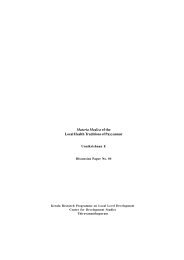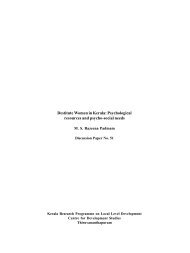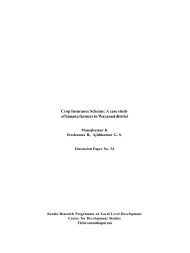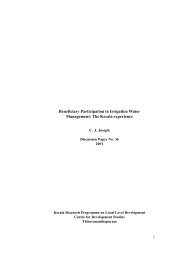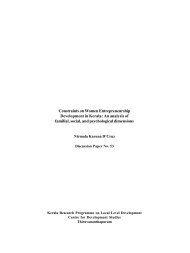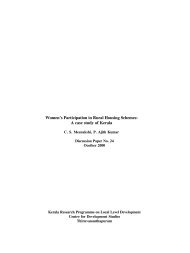Psycho-social problems of women who had undergone hysterectomy
Psycho-social problems of women who had undergone hysterectomy
Psycho-social problems of women who had undergone hysterectomy
You also want an ePaper? Increase the reach of your titles
YUMPU automatically turns print PDFs into web optimized ePapers that Google loves.
firm belief that a woman has the right to decide the fate <strong>of</strong> her own organs. Sheshould not be made to feel inadequate or disturbed for questioning the necessity <strong>of</strong><strong>hysterectomy</strong>. In fact, I believe that it is the obligation <strong>of</strong> the physician to presentto each <strong>women</strong> all <strong>of</strong> her treatment options in detail, giving the pros and cons <strong>of</strong>each. I believe a physician should do so honestly, even if that particular physicianis not capable <strong>of</strong> providing some <strong>of</strong> the treatment options and referral to anotherphysician may be required. If after such an honest discussion, the patient elects notto have a <strong>hysterectomy</strong>, it is the obligation <strong>of</strong> the physician to support her in herdecision, even when it means referral to another expert.Depression and psychiatric <strong>problems</strong> was reported in many studies <strong>of</strong> post<strong>hysterectomy</strong><strong>women</strong> [Salter (1985), Steiner and Aleksandrowicz (1970) Baker(1968)] The susceptibility was found to be more for <strong>women</strong> <strong>who</strong> already sufferedfrom depression, those aged below 40, and <strong>who</strong> <strong>had</strong> low educational levels. Those<strong>women</strong> <strong>who</strong> <strong>had</strong> misunderstandings or misconceptions about the surgery and itsoutcome were also more likely to suffer from psychosexual <strong>problems</strong> in the post<strong>hysterectomy</strong>phase. The same was the case with <strong>women</strong> <strong>who</strong> believed that theuterus played a significant role in their self-concept/ sexual functioning. It wasalso observed that <strong>hysterectomy</strong> caused more stress and depression then othercomparable surgeries. [Barker, 1968; Drummond and Field, 1984; Green 1973;Roeske, 1978; Humphries, 1980; Lalinec-Michaud and Engelsmann, 1984; Salter,1985]Different researchers have proposed various reasons for the onset <strong>of</strong> depression.One argument is that <strong>women</strong>’s self concept <strong>of</strong> femininity is undermined by the loss<strong>of</strong> the uterus which in turn leads to depression [Raphael, 1978]. Another argumentis that depression is brought about by the hormone changes in the body following<strong>hysterectomy</strong>. [Richards (1973), Richards (1974)]A few researchers have found evidence <strong>of</strong> cases where <strong>women</strong> were less depressedafter the <strong>hysterectomy</strong> than they were before the operation. It was reported that


